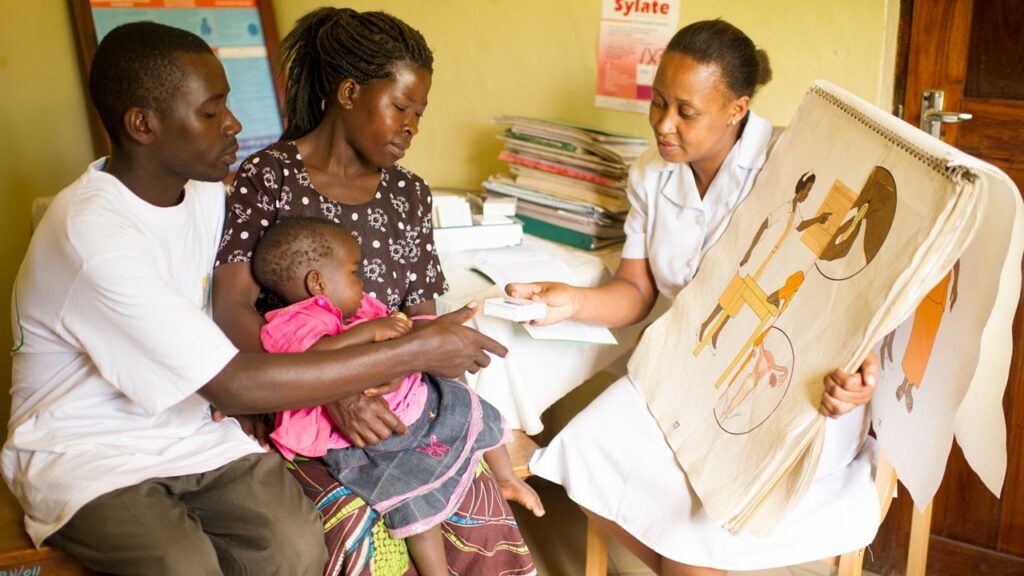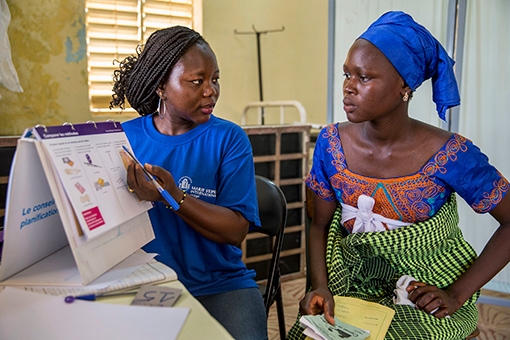Dear Beamers,
Greetings!
Family planning is vital for the well-being of families, allowing individuals to make informed decisions about the timing and number of children they wish to have. With Nigeria’s diverse traditions and large population, strategic childbearing decisions are essential for couples and children to lead fulfilling lives, despite various life challenges. Therefore, in line with our commitment to delivering insightful information on the issues faced by the average Nigerian, this week’s newsletter explores how family planning can lead to healthier families and communities.
Few issues garner unanimous agreement among Nigerians, regardless of their diverse traditions and backgrounds. One such consensus is that strong families are fundamental to the well-being of society and the health of a nation. This underscores that investments in strengthening families yield significant benefits in both the short and long term, with family planning playing a pivotal role in this regard.
Family planning is the deliberate process by which individuals or couples make informed decisions about the number of children they wish to have and the optimal timing for childbearing. This involves a conscious effort to regulate the timing and number of births, allowing individuals the autonomy to shape their reproductive journey.
Family planning techniques are diverse, catering to a range of preferences. Contraception methods, fertility awareness, and reproductive technologies form the foundation of family planning. Contraception offers various options for preventing pregnancy, providing individuals with tailored selections to meet their specific needs. Deciding whether and when to have children is one of the most transformative decisions one can make. Unfortunately, for many worldwide, this choice remains elusive. Millions of girls and women today wish to delay or prevent pregnancy but lack access to modern contraception. This situation has devastating implications for both mothers and infants. Too often, girls are forced to give birth before their bodies are ready, making pregnancy a leading cause of death for adolescent girls in Nigeria. Additionally, when births are not adequately spaced, the risk of maternal and infant mortality significantly increases.
According to Nurse Juliana Madueke from LilyCare Maternity Home.
“In my experience, the main reasons for maternal deaths in Nigeria are severe bleeding after childbirth, infections, and high blood pressure during pregnancy. Honestly, this is more of a problem in rural areas. You often see men who can barely feed themselves and their wives, yet they have three to five children. As a result, these children suffer from immense pain, hunger, and hardships due to their parents’ poor planning and lack of family planning.”
Family planning offers several advantages that significantly impact individuals, couples, and communities, one of which is health and well-being. The well-being of mothers is significantly improved through the promotion of health and family planning. By enabling couples to space out pregnancies, family planning helps reduce health risks linked to frequent childbirth. This allows mothers adequate time to recover between pregnancies, ultimately enhancing maternal health and decreasing the chances of complications during childbirth.

Implementing effective family planning strategies and improving health conditions play a crucial role in reducing infant and child mortality rates. By carefully spacing pregnancies and providing sufficient maternal healthcare, we can significantly enhance the health outcomes of newborns and young children. These efforts ultimately lead to lower mortality rates, fostering stronger and healthier communities.
Family planning helps mothers avoid pregnancy during periods of vulnerability, such as youth or advanced age. The risk of pregnancy-induced hypertension is significantly higher in younger mothers. Medical research has shown that older mothers, who have experienced multiple labors, are at an increased risk of uterine rupture during labor, which can cause severe vaginal bleeding and shock. In areas lacking emergency obstetric care facilities, these age-related complications have been leading causes of maternal deaths. Therefore, it is advisable for women to use family planning methods once they have achieved their desired number of children to avoid further pregnancies. The risk of dying from multiparity (having more than one child) increases for women who have given birth to five or more children; their risk is 1.5 to 3 times higher than for those who have given birth to two or three children.
“I work at a healthcare center, so I understand the importance of family planning. If it weren’t for the advice I followed, we might have had five kids by now, which would have been a real struggle given the current state of my husband’s business. His business has been tough, and without careful planning, providing for a larger family would have been nearly impossible. Thanks to the guidance we received, we were able to put our son’s needs first and ensure a better quality of life for him.” Says Olonade Fatima
Family planning offers the opportunity to empower women by granting them control over their reproductive health. Access to a range of contraceptive methods allows women to plan pregnancies strategically, pursue higher education, and participate more fully in the workforce. This not only promotes gender balance but also enhances women’s autonomy and empowerment, significantly improving educational opportunities. Spacing births enables families to allocate resources effectively and provide focused attention to each child, thereby enhancing access to education and fostering holistic child development.
A well planned reproductive journey isn’t solely about saving lives; it’s also about setting families on a healthier and more stable path. When women can delay pregnancies, they have the opportunity to stay in school and pursue income-earning activities. As a result, when they eventually start their families, their children are likely to be healthier and better educated, contributing to breaking the cycle of poverty. Access to quality family planning and reproductive healthcare ensures that every woman, regardless of her location, has the ability to shape her own future.
Family planning enhances economic security for families by enabling couples to strategically plan the timing of pregnancies. This allows them to budget resources effectively and meet the needs of their children. The resulting financial stability benefits not only immediate family members but also contributes to broader economic prosperity within communities. This breaks the cycle of poverty and plays a pivotal role in advancing the socio-economic status of communities.
In the recent past year, Nigeria’s economic situation has drastically worsened. Many who were previously able to afford three square meals daily now struggle to provide even one meal per day, despite maintaining the same number of family members. Additional expenses such as transportation, school fees, rent, security charges, electricity bills, healthcare costs, and others further strain finances. In such challenging economic times, it becomes increasingly important to adopt proactive financial strategies to prepare for potential economic downturns. Family planning emerges as a sensible approach to strategically manage resources and scale through uncertain economic conditions, ensuring preparedness to weather any future economic challenges.
Akindele Bori, a retired government worker believes the modern man should not approach child bearing like it was done by our forefathers. In his words,
“I would say our forefathers were fortunate to raise tens of children successfully because life was different back then. Agriculture provided for their feeding needs, education was largely government-funded, and technological advancements were minimal. However, times have changed. Today, a man should not succumb to societal pressure to marry, let alone have more children than he can support. The consequences would not only affect him but also cause hardship for his children.”

Health organizations should conduct awareness programs to educate families about family planning methods. These teachings can enhance understanding among families about improving maternal and child health, by addressing the realities and statistics related to family planning within society. Establishing a consistent local presence with trusted healthcare providers allows health organizations and NGOs to deliver essential services effectively in communities worldwide. These efforts are rooted in health, medical expertise, and social values.
Faith-based initiatives that provide reproductive health services and family planning have significantly enhanced the well-being of mothers and children worldwide. There is a critical role for religious and faith-based organizations to promote family planning in Nigeria. Many of these organizations, whether Christian or Muslim, operate on the principles of human rights and dignity as gifts from God, the sanctity of human life, the alleviation of suffering, and the right to physical and mental health. These shared values across different faith traditions form a strong foundation for collaboration. To address the risks associated with unsafe abortion practices—such as complications, infertility, and, in severe cases, death—faith organizations need to consistently advocate for campaigns that promote education on family planning.
Ultimately, family planning encompasses a range of strategies that empower individuals and couples to navigate their reproductive choices confidently and knowledgeably. A higher proportion of well-educated, healthy, productive, and self-sufficient families can significantly contribute to a country’s sustainable development. These benefits are extensive, underscoring how intentional family planning can enhance various aspects of life. It remains a crucial component of reproductive health, promoting empowerment and informed decision-making for individuals accessing women’s family planning services. Everyone should have the freedom to make personal decisions about their families and reproductive lives, guided by their culture, faith traditions, religious beliefs, conscience, and community.




